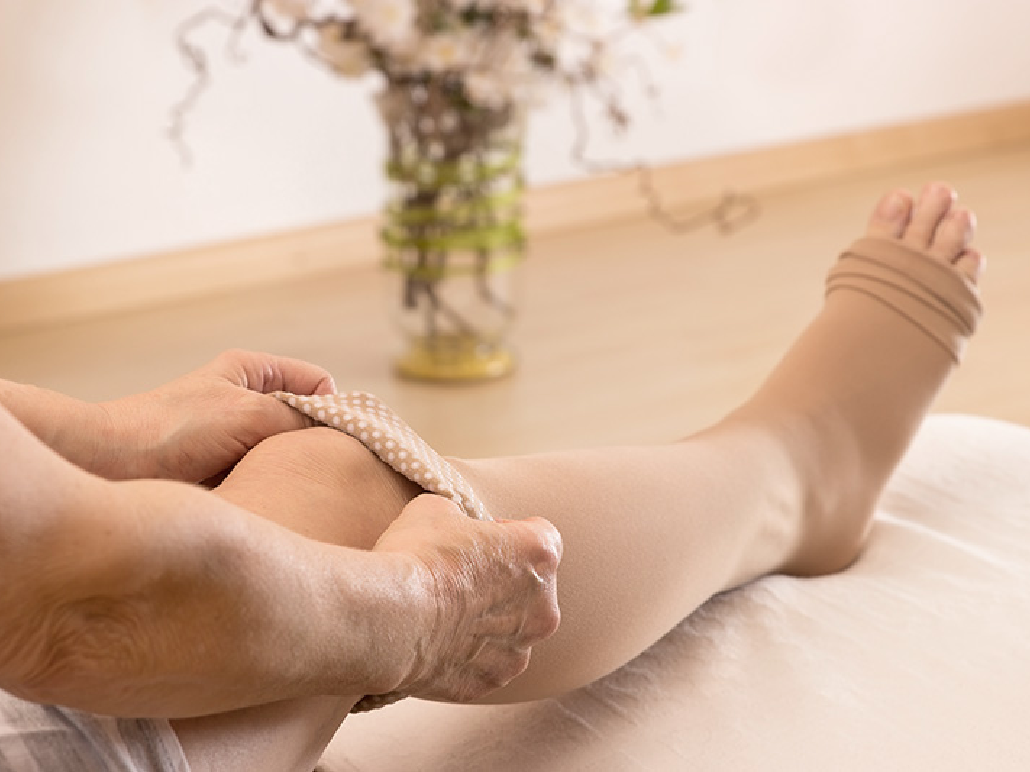Conservative Vein Treatment
As with any medical condition, chronic venous insufficiency should initially be treated as conservatively as possible to alleviate pain, discomfort, itching, swelling, restless legs, and other undesirable symptoms. During your first visit with Dr. Siragusa, he will discuss all your options for conservative therapy. Some examples of conservative therapy include: wearing compression stockings, exercising, properly elevating your legs, avoiding prolonged sitting or standing, losing weight when indicated, taking anti-inflammatory pain medication, and rest.

Medical grade compression stockings are used to help move blood up and out through your veins more effectively by squeezing the leg, tightest at the ankle, preventing blood from pooling in varicose veins. We advise our patients to wear their compression socks throughout the day, starting when they wake up, and removing them right before bed. Most commonly, patients with chronic venous insufficiency benefit from compression socks that provide 20-30 mmHg of pressure.
Leg elevation is one of the most common treatment options to help relieve the symptoms of varicose vein disease. To effectively improve swelling, your feet and legs need to be above the heart for at least 20 minutes, twice a day. Merely resting the feet up on a footstool will not have the same benefit.
Exercise is also a great way to improve the circulation of blood in your legs. The simple act of walking utilizes our calf muscles, which in turn, helps to pump blood back up to the heart through our veins. Being overweight is a risk factor for developing vein disease. Therefore, maintaining appropriate body weight is important in helping slow the progression of this problem.
For patients who suffer from painful veins, we typically recommend a non-steroidal anti-inflammatory drug (NSAID). These medications are widely used for other forms of pain and seem to be the most effective option for pain secondary to varicose veins.
5 Tips For Getting Your Insurance To Cover Your Vein Treatment
Many of our patients are very surprised to learn that Insurance often covers the treatment of symptomatic varicose veins. The insurance specialists at Siragusa Vein and Laser have compiled a list of ways to get your insurance provider to cover your treatment.
Take The First Step
Although lifestyle changes and these conservative treatments may temporarily decrease the discomfort associated with venous insufficiency and slow down its progression, they can not cure your varicose veins. If you are not satisfied with the level of relief provided by conservative treatment options, Dr. Siragusa and his team are here to explore other treatment options and provide the best vein care available in the Nashville area.
